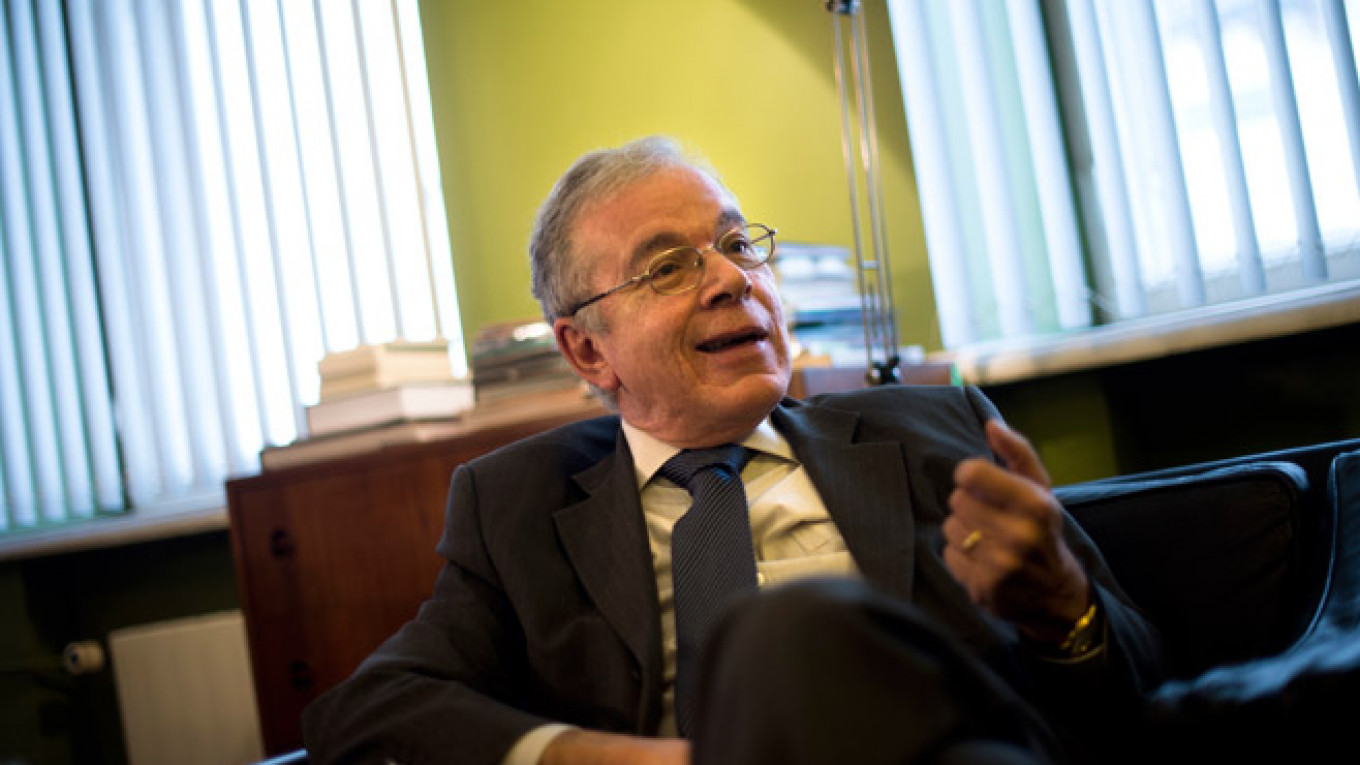Russia's ban on food imports from countries that sanctioned Moscow over Ukraine has freed up grocery shelves for products from other countries — including Brazil, one of Russia's partners in the BRICS group of emerging economies.
Brazilian poultry and pork, once challenged by European meat, have become staples of Russia's meat aisles, and Brazil's trade with Russia has increased 11 percent since the imports ban, according to the country's ambassador in Moscow, Antonio Jose Vallim Guerreiro.
"It's a bit too early to make a definite assessment on the results of the sanctions for Brazilian exporters. But yes, of course there has been an increase [in Russia's imports of Brazilian goods]," Guerreiro told The Moscow Times in a recent interview.
In August, media reported that European Union officials would speak to the countries that could replace European exports to Russia — like Brazil — to dissuade them from unfairly taking advantage of the situation.
Guerreiro dismissed these reports as "rumors," adding Brazil had never been approached by EU officials about this matter.
"The government cannot tell businessmen, 'stop doing business,'" he said. "We have said from the beginning, here and back home, that we are not here to take anyone's place. The private sector knows what it is doing. We give them institutional support."
Balancing Act
Guerreiro arrived in Moscow in January of last year, ahead of the country's annexation of Crimea. Brazil was among the 58 countries that abstained from voting on the United Nations General Assembly resolution on Ukraine's "territorial integrity," which called to reject Crimea's March 16 referendum on joining Russia's federal fold.
Brazil has been playing a balancing game, refusing to endorse or condemn Russia's annexation of Crimea. Its rejection of sanctions that are not imposed by the United Nations Security Council has opened up a broad playing field for its bilateral and multilateral relations with Russia without tarnishing its relations with the West.
"Brazil has a standard position on sanctions," Guerreiro told The Moscow Times. "The only entity that can impose sanctions is the UN Security Council. In principle, we don't like sanctions imposed by one country or a group of countries. The United States and the EU fully understand what our position is. They've known it for quite some time."
The economies of both Russia and Brazil are among the world's 10 largest, with respective gross domestic products of 2.1 and 2.2 trillion dollars. Guerreiro deplores that trade between Russia and Brazil is still relatively low, with trade flows amounting to $6 billion in both directions, according to the ambassador.
"Trade could be much higher," he said. "Especially if you consider the size of our economies. But there are several reasons for this: distance, the fact that Brazil has never been a traditional market for Russia and vice versa. These are challenges both Russia and Brazil have to face."
BRICS Buddies
Many high-level exchanges between Russia and Brazil occur within the BRICS: Brazil, Russia, India, China and South Africa. The organization agreed last summer to found the BRICS development bank, which Guerreiro said would serve the financial needs defined by the member countries. The parliaments of all five BRICS nations must approve the project before it can be carried out. The Russian government submitted a bill about the BRICS development bank to the State Duma earlier this month.
Russian Finance Minister Anton Siluanov said earlier this week that Russia expects to ratify the agreement on the bank's foundation in late February or early March. The country has said it would contribute $2 billion to the bank's capital over seven years, the TASS news agency reported.
"We don't want to replace the World Bank," Guerreiro said. "We want to reform where reform is needed. We know perfectly well that the institutions that came out of World War II need to be reformed to respond to the reality that prevails right now."
Russia is set to host the BRICS summit next summer in Ufa. Guerreiro, much like Russian officials, said it was "only natural" that other centers of power have emerged over the last decades.
"The development of world institutions takes time by definition," he said. "The weight of a country like Brazil is now is not the same as it was 30 or 40 years ago. That is the case for other countries as well, like India for instance. In my view, we should expect a more multipolar world, in which more people will have a contribution to make things work."
Contact the author at [email protected]
A Message from The Moscow Times:
Dear readers,
We are facing unprecedented challenges. Russia's Prosecutor General's Office has designated The Moscow Times as an "undesirable" organization, criminalizing our work and putting our staff at risk of prosecution. This follows our earlier unjust labeling as a "foreign agent."
These actions are direct attempts to silence independent journalism in Russia. The authorities claim our work "discredits the decisions of the Russian leadership." We see things differently: we strive to provide accurate, unbiased reporting on Russia.
We, the journalists of The Moscow Times, refuse to be silenced. But to continue our work, we need your help.
Your support, no matter how small, makes a world of difference. If you can, please support us monthly starting from just $2. It's quick to set up, and every contribution makes a significant impact.
By supporting The Moscow Times, you're defending open, independent journalism in the face of repression. Thank you for standing with us.
Remind me later.






